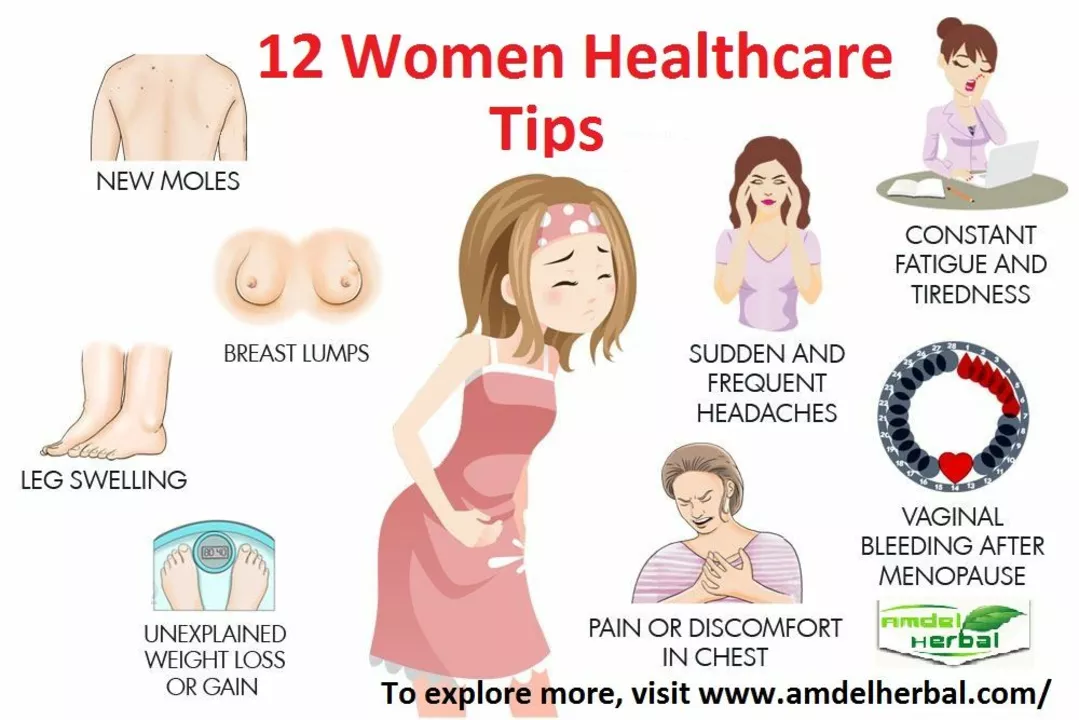Menopause Symptoms: What’s Happening and What Helps
Most people expect menopause to be one moment, but symptoms often show up gradually during perimenopause years before periods stop. You might notice weird sleep patterns, flashes of heat, or mood shifts and wonder if this is normal. Short answer: yes, many of these signs are common, and there are simple, effective ways to ease them.
Common menopause symptoms
Hot flashes and night sweats are the hallmark signs. A hot flash feels like a sudden rush of heat, often with sweating and a fast heartbeat. Night sweats can wreck sleep, leaving you tired the next day. Periods change too — they can become irregular, lighter, or heavier as hormones drop.
Other frequent problems: vaginal dryness and pain with sex, lowered libido, mood swings or anxiety, memory fog, joint aches, and thinning hair. Bone density drops after menopause, increasing fracture risk over time. These symptoms vary a lot from person to person — some have mild changes, others need medical help to feel good again.
Practical relief and next steps
Start with easy fixes you can try today. For hot flashes: dress in layers, keep a handheld fan beside the bed, avoid spicy food and alcohol close to bedtime, and cut back on caffeine if it triggers night sweats. Lightweight cotton sheets and a cool shower before bed help too.
For sleep problems, build a solid routine: same wake time every day, no screens an hour before bed, and limit naps. If anxiety or racing thoughts keep you awake, try short breathing exercises or 10 minutes of gentle stretching before bed.
Vaginal dryness responds well to water-based lubricants during sex and regular use of a vaginal moisturizer. If the problem persists, ask your doctor about low-dose vaginal estrogen — it treats dryness with minimal systemic effects for most people.
Exercise matters. Aim for a mix of weight-bearing moves (walking, squats) to protect bones, plus strength work and cardio for mood and sleep. Keep calcium and vitamin D in mind; your provider can advise daily amounts based on your age and health.
Medical treatments are an option. Hormone replacement therapy (HRT) is the most reliable way to reduce hot flashes and protect bone health, but it’s not right for everyone. Non-hormonal prescriptions — certain antidepressants, gabapentin, or clonidine — can help hot flashes or mood symptoms for people who can’t take hormones. Talk openly with your clinician about risks and benefits.
Don’t ignore severe changes. See a doctor right away if you have very heavy bleeding, sudden chest pain, fainting, or severe depression or suicidal thoughts. For everyday worries like mood swings or sleep loss, a short visit can point you to the right treatment or support group.
Tracking your symptoms for a few weeks — time of day, triggers, and severity — makes appointments more productive. Menopause doesn’t have to feel like a mystery. With small lifestyle shifts and the right medical support, most people find solid, lasting relief.
Menopause and Hormone Therapy: What You Need to Know About Benefits and Risks
Menopause hormone therapy can effectively relieve hot flashes and protect bone health, but risks like breast cancer and blood clots vary by age, timing, and delivery method. Learn what the latest research says about safety and who benefits most.
MoreThe Benefits of Exercise in Managing Menopause Symptoms
As a woman going through menopause, I've found that exercise plays a crucial role in managing my symptoms. Engaging in regular physical activity has not only helped me maintain a healthy weight, but it has also improved my mood and reduced hot flashes. Additionally, exercise has been beneficial in boosting my energy levels and promoting better sleep. Overall, incorporating exercise into my daily routine has been essential in managing my menopause symptoms and improving my overall well-being. I highly recommend other women experiencing menopause to give it a try too!
More

